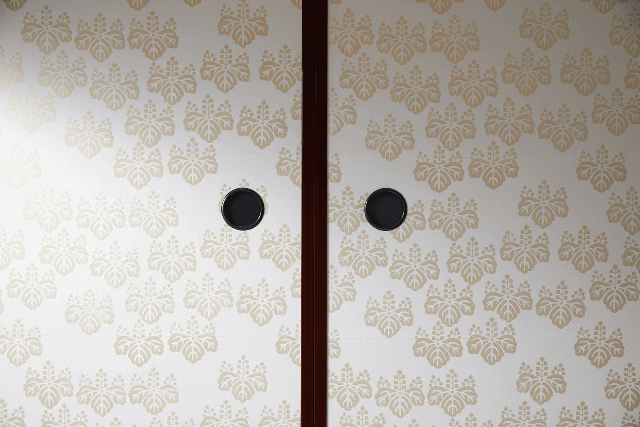Midnight Noises ~ Haiku of Japan
yonaka no fusuma toku shimeraretaru
a distant door
slides shut
—Hosai

Sliding doors (fusuma, 襖)

In Japanese houses rooms are typically separated with sliding doors rather than doors that swing open as in the Western style. The wood of the door sliding over the wood of the frame makes a very distinctive sound that is hard to miss, even if the person sliding it open or closed is careful to be as quiet as possible.
Hosai was a free-verse poet with a drinking problem who later took Buddhist vows and became a monk. He joined a number of different temples only to be kicked out due to drunkenness. Eventually he found a position as caretaker of a small Buddhist temple on the island of Shodo. He was almost completely isolated there. In loneliness, he embraced haiku writing, all of which would be published in one book after his death.
Like Santōka, our other drunken Zen monk haiku poet, all of Hosai's haiku were free-verse and most of them explored other topics than the nature-based ones typical of haiku. Not a huge surprise considering both Hosai and Santōka had the same teacher. These days he is considered one of the finest haiku poets of the past century.
❦

 |
David LaSpina is an American photographer and translator lost in Japan, trying to capture the beauty of this country one photo at a time and searching for the perfect haiku. |
If this blog post has entertained or helped you, please follow/upvote/reblog. If you want to further support my writing, donations are welcome.
That is, me! If you like this translation, feel free to use it. Just credit me. Also link here if you can. ↩
Yeah you've made me totally fall in love with this dude. Amazing how your mind slides into the haiku and after a second, hears the sound...
Perfect Haiku with so much meaning. I enjoyed how you gave life and meaning to the Haiku so we can see it the right way.